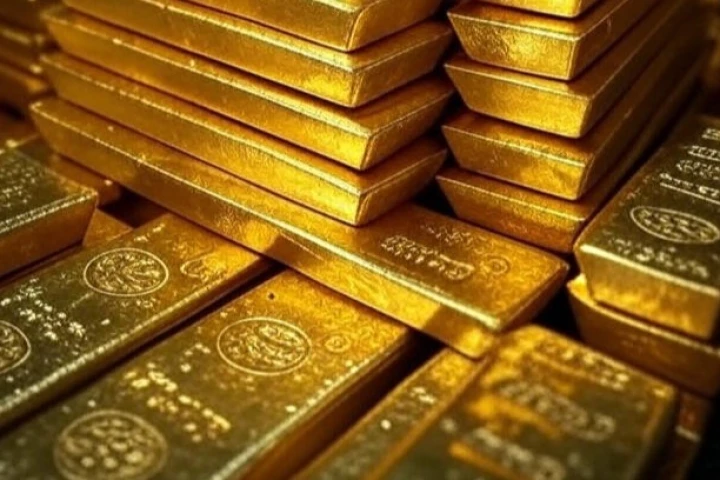By Matt H. Kennedy
If you could resist drinking it, you may just find that hanging on to a few bottles of fine single malt could not only make a sound investment but one which is more interesting than boring old stocks and far more reliable than wine. At Bonhams in Edinburgh, their second ever dedicated whisky auction has not only shown that there's a strong market for rare whisky, (with 95% of all lots sold) but that the big boys of the auction world are taking it seriously.
Much like wine, whisky has been collected by enthusiasts for generations, but only recently has there been sufficient movement in the marketplace - and therefore financial incentive - for major auction houses to hold regular sales of rare whiskies. There are many reasons why this might be happening now, but developments in the industry during the 20th century combined with a better informed and more prosperous marketplace are as good a reason as any.
Changes in the whisky industry
During the 20th century, many distillers embraced modern marketing methods and produced broader ranges, as well as more limited bottlings for the wealthy end of the market. In addition to this, distillers who had previously sold the bulk of their product to companies making blended whisky decided to promote their own single malts more aggressively. This has created a surge in the variety of limited and/or rare bottlings but it's not the only reason.
Mothballing of distilleries
Another contributing factor is the sad closure of many well regarded distilleries. These closures have had the same affect upon the surviving bottles as the death of an artist has upon the value of their art. Ardbeg, from Islay, (and one of my favorites) was mothballed in 1981 but was lucky enough to reopen when Glenmorangie bought the distillery in 1997 and relaunched the brand - initially with stock that was left over from before the closure. The nearby much loved Port Ellen distillery - like too many others - wasn't so lucky.
The market wises up (and cashes in)
As with fine wine collecting, which was once the domain of the wealthy few, more and more 'regular Joes' (such as I) are collecting whisky. There is more information out there about whisky than ever before, more whisky clubs and societies and many patient souls (with a lot of willpower) have profited from their passion. Speaking of societies, one can't forget the contribution that the Scotch Malt Whisky Society has made to the increased appreciation of whisky around the world since it began in the early 1980s in Edinburgh. From humble beginnings their membership has grown, almost exclusively by word of mouth, to around 28,000.
So it would seem, that with a wider range of collectable whisky and more whisky buffs out there (with more money) pursuing the bottled gold, there's never been a better time to be a whisky specialist in the auction industry.
Martin Green, author of "Collecting Malt Whisky" and currently Bonhams whisky specialist, has been auctioning fine and rare whisky since 1989, most recently with McTears auctioneers in Glasgow. It's no coincidence that Martin's entry into the industry began around the same time as the Scotch Malt Whisky Society was formed. The 1980s was to many, the beginning of a new era in whisky appreciation which has yet to abate.
From 1989 to the early '90s Martin held annual dedicated whisky auctions, which grew with demand to biannual sales in 1995 which in turn lead to quarterly sales. That Bonhams intends to pursue four dedicated whisky auctions each year say a lot about their confidence in the fine and rare whisky market. With few exceptions, auction houses generally bundle whisky into their wine sales (if they have them) or into their regular 'general sales' which all too often contain the bits and bobs that don't quite make the cut for the 'specialist sales'. The other instance where fine and rare whisky finds itself up for auction is during important 'estate sales' or 'house sales'. Bonhams next whisky auction will be on day 2 (August 19) of their forthcoming Scottish Sale.
Highlights of Bonhams (and Martin's) most recent sale (March 4th, 2009) include:
- Glenfarclas Anniversary (Speyside) £1,170 (USD$1,700)
- Laphroaig 40 year old (Islay) £1,055 (USD$1,535)
- Port Ellen Maltings, 21 year old (Islay) £1,500 (USD$2,170)
- Rare Highland Park, 12 year old (Orkney - not "The Highlands" at all!) £1,860 (USD$2,690)
- Jameson's Old Irish, Bonded 1885 (Dublin) £815 (USD$1,180)
A sweeter investment than wine you say?
In my opinion, yes. The potential returns may not be as high (yet) but the risks are far fewer.
Storage: While both wine and whisky require careful storage, wine is incredibly sensitive to movement, temperature and humidity - and don't think for a minute that just because someone owns three cases of Château Haut-Brion that it means they've kept it well. I've seen some terrible crimes against fine wine committed by people with more money than sense. With whisky all you need to do is keep it in a cool, dark place as this prevents fading of the whisky and the label. this of course is only important if you're investing rather than drinking. Oh and never store whisky on its side. The high alcohol can affect the cork, which in any case will stay moist due to the vapor in the bottle.
Always drinkable: Unlike wine, whisky never has a 'best to drink by' date. It never 'falls apart', uses up its fruit and acidity and never turns to vinegar. Basically, wine is a time-bomb. Or as Alan McMillan of Friarwood fine wine merchants in Edinburgh puts it, "Evolution of wine in-bottle is desirable, and therefore decline is ultimately inevitable."So as long as your whisky's kept intact, it should taste the same in fifty years as it would today. And while some will buy a bottle of wine purely because of its history - knowing that the contents have long ago turned to a brown, silty, unpalatable soup - the whisky investor can always decide to 'cash in' on their investment and drink up when the mood takes them - or if the market flops.
Aging: This is a common point of confusion, especially for people who are used to wine. How can a 1936 Mortlach be only 50 years old? Easy. Unlike wine, once whisky leaves the barrel and takes up residence in the bottle, its aging process ceases and it enters a kind of suspended animation - as long as it's not opened. Contrary to popular opinion, whisky starts to oxidize (like wine does but slower) as soon as it's opened. The more air in the bottle, the sooner it'll be nothing more than whisky-scented slop.
Single malt, pure malt, grain and blend? what's the difference?
Single malt... For most whisky lovers, the purest expression of whisky has to be single malt. There's a saying in Scotland that there's no such thing as a bad single malt, and I'd have to agree. Michael Jackson author of The Malt Whisky Companion and the world's most famous authority on whisky (who died in 2007) appeared to think the same way. To my memory, he never gave a single malt a bad review but he also said that those with a score of 75 and over were the only ones really worth buying.
Malt whisky is made from malted barley and nothing else and a single malt is a malt whisky from a single distillery. Single malts, mostly but not always, have a 'cask age' on the label but this shouldn't put you off. My favorite sensibly-priced single malt was Bowmore Darkest, (aged in oloroso sherry casks) which didn't display its age, but I'm guessing it was around 12 years old. In 2007 it was replaced by an "age declared" 15yo Darkest. Most whisky is diluted to around 40% alc. when bottled, but many single malts are also available in 'cask strength' which usually hovers around 60%. Arguments abound over adding water to normal-strength single malts, (I dilute most to at least 35%) but drinking cask-strength single malt undiluted is just asking for trouble.
Grain whisky... Made from malted and unmalted barley along with other grains. Until recently grain whisky has only been used in blends, but there are now a number of single grain scotches out on the market.
Vatted malt, pure malt, malt and blended malt... Different names for basically the same thing. Vatted malt is blended from malt whiskies from various distilleries. Many people see "Pure Malt" as a misleading term and prefer the more descriptive term of "Blended Malt".
Blended whisky... The most common style of whisky, with roughly 90% of the market, blended whiskies vary dramatically in quality. From award winners like Ballantine's 30yo and Cutty Sark 25yo through to stuff I wouldn't clean the driveway with. Blended whiskies are, literally, a blend of malt and grain whiskies. Personal favorites of mine include Bailie Nicol Jarvie, made in Leith near Edinburgh and Bushmills Black Bush from Ireland.
Irish whiskey ... There are three general features of Irish whiskey - apart from the spelling - which distinguish it from Scotch:
1. The majority of Irish whiskeys are triple-distilled (although some Scotch is too) which adds smoothness.
2. Irish whisky was traditionally made with 100% malted and unmalted barley and was known as 'pure pot still whiskey'. this style was produced with similar pot stills to single malt, with the 'green' unmalted barley being the source of the unique, spicy, Irish flavor. It should be noted that these days, most Irish whiskeys also use other grains, much like Scottish grain whisky, and are a mixture of 'pure pot still whiskey' and cheaper 'coffey' or 'column still' whiskey. (Bushmills is the only Irish distiller not to produce 'pure pot still whiskey'.)
3. Peat is absent from the malting process for Irish whiskey, but again, there are exceptions to this. (Peat gives many Scotches, especially those from Islay, their distinctive smokey flavor.) While Scotland is the clear flag-bearer of the whisky-world, Irish whiskey has a proud history and, as it dates back to the 12th century, is one of the earliest distilled drinks in Europe. Bushmills Distillery in County Antrim, which gained its license in 1608 is the oldest licensed distillery in the world.
Whiskey / Whisky. You say potato?
'Whisky' is an anglicized version of 'Usquebaugh' which in turn is a compound of 'uisce beatha' in Irish, or 'uisge beatha' in Scots Gaelic. All of course translate as 'water of life'. And while the contemporary spelling of whisky over the years has been a bone of contention for many - it really shouldn't be.
It's quite simple. 'Whiskey' with an 'e' is used for Irish and American products, while the rest of the world (Scotland, Wales, Canada and Japan) all use 'whisky'. And while the Irish claim to have invented the stuff (I believe them, but then, I'm Irish), the original spelling even in Ireland was 'whisky'. The change came in the late 1800s when the Irish and Americans wanted to distinguish their (at that time) 'generally' superior product from the flood of poor quality 'Coffey Still' produced whisky that the Scots had saturated the world market with. That's not to say the Scots weren't making great stuff then, because they were, but like the French with their world leading wines, they also made an awful lot of muck too. If you want more on the subject of pronunciation, see the list at the end.
How should we drink whisky?...
I'll skirt the various arguments and go with what I've learned from various distillers during tastings and seminars - feel free to put your two cents/pence in via the comments:
Water: Single malt really should be diluted, preferably with room-temperature spring water. It's said that this 'unlocks the aromas' but as I failed chemistry (yet topped the year in physics, go figure) I couldn't for certain tell you that this is what actually happens. If you don't dilute, that's fine, but you risk overloading or burning your taste-buds and you'll almost definitely miss out on the more subtle, floral flavors. While each single malt needs be treated individually when it comes to adding water, the consensus seems to be to dilute it down to 30-35% alcohol volume at least. Beware though, some of the older stuff falls to bits with more than a few drops, so my best advice is to start straight, add a drop or two and go from there. That goes the same with cask strength. Try it straight for fun, but dilute it to a point where you feel you're getting a full spectrum of taste. At tastings I attended at the Scottish Malt Whisky Society, we were encouraged to taste it at full cask strength, then dilute it down until we were happy (and it doesn't take long to get happy with whisky).
Ice: In a good whisky, no way. It closes in the flavors. You're wasting your money and getting half a whisky at best.
Mixers: Coke, soda, ginger ale all have their place in cocktails and the like, but unless your drinking a fairly average, unremarkable blended whisky, then it doesn't make sense to mask all the subtle flavors and aromas of "the water of life" with what are basically fizzy, cold, sugary kids' drinks.
Oh, and like wine, put it into a decent glass. Please. While I'm partial to nice heavy bottomed 'Old-Fashioned' glasses, I really should be using the elegant 'whisky snifter' glass I was given before I left Edinburgh. While there's no 'proper' whisky glass (yet) something with a wide bowl and a tapered top - much like a wine tasting glass - is probably best as it will retain the aromas. Glencairn Crystal in Scotland have produced one such glass which has proven so good, it won the Queen's Award for Innovation in 2006.
Finally - What's in a name?
Sometimes... a lot, and it might mean the difference between making friends with a Scot and getting the cold shoulder or worse. Having worked in the fine wine and spirit industry in Scotland (as well as coincidentally, Scotland's oldest auction house) I feel the need to clarify a few mispronunciations I've heard around the world - and even from the Scots themselves. Note that I'm no linguist and have no desire to use text-book style phonetic mark-up but if you use these as a guide, you shouldn't be too far off.
- Islay = Eye-la (not Iz-lay)
- Laphroaig = La-froyg (not La-fraig, nor Lap-ha-roy-gee as I've also heard)
- Glenmorangie = rhymes with orangey! (not Glen-more-an-jee)
- Jameson = Jam-eh-s'n (not Jame-eh-s'n)
- Ardbeg = Ard-beg (emphasis on the last syllable)
- Lagavulin = Lah-ga-voo-lin (not La-gavlin)
- Bunnahabhain - Boona-hah-v'n (We once had a lady ask quite confidently for Bunna-hubba-hub-bain. I think we said we didn't stock it)
- Caol Ila = Kuhl-ee-lah (Not Cowl-eye-la)
- Bruichladdich = Brook-laddie (this is according to the distillery, although they really should pronounce the guttural 'ch' at the end. My historian friend from Islay says something like: Brook-Ladd-ikh so I'm with him)
I must apologize at this point, as it does seem that I'm focussing on whiskies from Islay. I'm not really, even though I certainly feel that Island whiskies and Islay whiskies in particular, are the ultimate expression of Scottishness. It's just that these are the ones which most people seem to have the biggest problem pronouncing. After all, anyone who has problems pronouncing 'The Macallan' or 'Glen Grant for instance, really has no business going anywhere near any sort of alcohol.
Oh and finally ... my beloved Edinburgh. It's Edin-brah. Say Ed-in-burrow in an Edinburgh bar and you'll get more than water in your whisky I can promise you.
As always, your thought and comments are welcome.
Matt H. Kennedy











